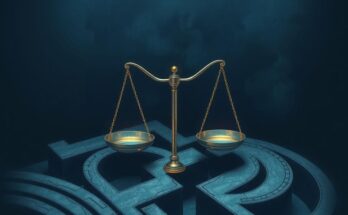The Nigerian government refutes claims of being snubbed in the UN Human Rights Council elections, clarifying it did not seek a seat. Five nations—Benin, Gambia, Kenya, DRC, and Ethiopia—were elected without competition. Concerns arise around the human rights records of some newly elected members, prompting calls for evaluation of their appropriateness for serving on the council.
In a decisive response, the Nigerian government has clarified recent speculations surrounding its absence in the latest elections for the United Nations Human Rights Council (UN-HRC). Contrary to rumors of being intentionally overlooked, officials assert that Nigeria simply did not pursue a seat in this year’s election process. Instead, five other African nations—Benin, Gambia, Kenya, Democratic Republic of Congo, and Ethiopia—were elected without competition as each of these countries was endorsed for the available positions. This explains why all five seats allocated to the continent were successfully filled. Bayo Onanuga, the President’s Special Adviser on Information and Strategy, stated that Nigeria’s absence resulted from a lack of candidates vying for the unoccupied seats, saying, “Any vote recorded for Nigeria in the secret balloting was cast in error by countries that mistakenly thought Nigeria was on the ballot.” This statement strongly refutes notions of being ‘snubbed’ by fellow states in Africa. Among the new appointees, however, emerge concerns regarding the suitability of some members to uphold the esteemed principles of human rights, particularly given their past records. Advocates have raised alarms over nations such as Ethiopia, long criticized for alleged human rights violations, questioning how their roles align with the objectives of the Human Rights Council. The Global Centre for the Responsibility to Protect has urged for a reevaluation of these recent selections. They underscore the importance of the Council’s mechanisms in preemptively addressing risks of global atrocities, championing human rights across the globe while scrutinizing the integrity of its members. As Nigeria moves past the elections, the focus shifts to the implications of the newly elected members and their capacity to champion human rights within a body tasked with their global protection.
The United Nations Human Rights Council (UN-HRC) plays a pivotal role within the UN system, tasked with promoting and safeguarding human rights worldwide. The recent election, where five African nations were chosen as members for a term running from 2025 to 2027, has brought scrutiny regarding the qualifications of the members. This year’s elections saw Nigeria, a significant player in African politics, withdrawing from pursuit of a seat amidst a backdrop of accusations concerning the human rights records of certain newly elected countries. This shift highlights ongoing dialogues on accountability and the effectiveness of the council’s oversight.
The Nigerian government has effectively quashed rumors of being deliberately excluded from the UN Human Rights Council elections, clarifying that it did not seek candidacy amid a lack of competition from other nations. As the newly elected members take their places, the discourse surrounding their suitability and potential to uphold human rights standards continues, prompting calls for careful examination of their past actions in relation to the core values the Council represents.
Original Source: africa.businessinsider.com


